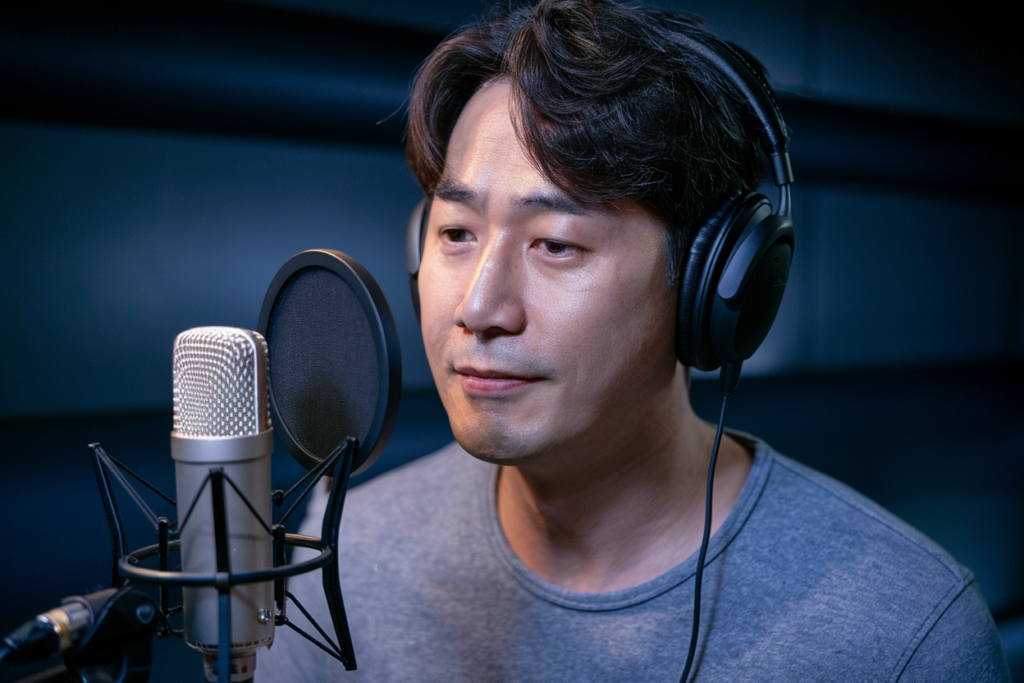Key Takeaways
- Distinct Accents: The Busan accent is softer and more melodic, while the Seoul accent is clear and structured, reflecting their respective regional identities.
- Pronunciation Variations: Busan speakers often drop final consonants, making words sound less pronounced compared to the precise enunciation of the Seoul accent.
- Cultural Significance: Each accent carries historical narratives that shape social interactions; the friendly tone of Busan fosters camaraderie, whereas Seoul’s clarity aids formal communication.
- Vocabulary Differences: Unique local expressions in Busan differ from standardized language forms in Seoul, enhancing cultural connections during conversations.
- Grammar Nuances: While following standard Korean grammar rules, informal usage can vary between accents, highlighting distinct colloquial phrases.
- Enhanced Communication: Understanding these accents improves engagement with native speakers and enriches appreciation for Korean culture.
Ever wondered why the Busan accent sounds so different from the Seoul accent? If you’re diving into Korean culture or planning a trip, understanding these regional accents can make a world of difference.
Overview Of Korean Accents
Korean accents vary significantly across regions, reflecting the country’s rich linguistic diversity. The Busan and Seoul accents stand out due to their unique phonetic characteristics and intonation patterns.
Busan Accent
The Busan accent features a distinct intonation that often sounds softer than the Seoul counterpart. Pronunciation in Busan tends to drop final consonants, which can make words sound more melodic. Additionally, speakers frequently use informal expressions, contributing to a friendly atmosphere in conversations.
Seoul Accent
The Seoul accent is generally perceived as the standard form of Korean. Its pronunciation remains clear and precise, with less variation in tone compared to Busan. In formal settings, you’ll notice that speakers from Seoul maintain a more structured speech pattern, making it easier for language learners to understand.
Key Differences
- Intonation: The Busan accent has a more relaxed melody while the Seoul accent stays consistent.
- Consonant Usage: Final consonant drops are common in Busan but rarely occur in Seoul.
- Formality: Speech in Seoul leans towards formal structures; informal expressions are prevalent in Busan.
Understanding these differences enhances your appreciation for Korean culture and can improve communication if you engage with native speakers from either region. Whether you’re traveling or simply exploring the language, recognizing these accents enriches your experience.
Understanding The Busan Accent
The Busan accent offers a unique glimpse into Korea’s regional linguistic diversity. Its distinct characteristics set it apart from the Seoul accent, making it an interesting study for anyone interested in Korean culture.
Historical Background
The Busan accent has roots in the region’s history and its interactions with various cultures. Historically, Busan served as a significant port city, attracting merchants and travelers from different areas. This blending of influences contributed to the development of a unique dialect. Over time, local customs and traditions shaped how residents communicate, creating nuances that distinguish the Busan accent from others across Korea.
Key Features
Several key features define the Busan accent:
- Intonation: The intonation is often softer compared to other accents. This melodic quality can make conversations sound friendly and approachable.
- Final Consonants: There’s a tendency to drop final consonants in words. For example, “밥” (bap) may be pronounced more like “ba,” altering speech patterns slightly.
- Vocabulary: Certain words or phrases are unique to this area, influenced by local culture and lifestyle.
- Speed of Speech: Generally, speakers might talk faster than in Seoul, giving conversations an energetic flow.
Understanding these features not only enriches your appreciation for the language but also enhances communication with native speakers. By recognizing these distinctions, you gain valuable insights into the cultural identity of Busan’s residents.
Exploring The Seoul Accent
The Seoul accent serves as the standard dialect of South Korea, recognized for its clarity and structured pronunciation. Understanding this accent is crucial for effective communication in formal and informal settings.
Historical Background
Seoul’s status as the capital has influenced its accent significantly. Historically, it attracted people from various regions seeking education and employment opportunities. This influx led to a melting pot of linguistic influences that shaped the unique characteristics of the Seoul accent over time. The need for a common language among diverse populations solidified its position as the standard form of Korean.
Key Features
Several features distinguish the Seoul accent:
- Pronunciation Clarity: The Seoul accent emphasizes clear enunciation, making it easier for non-native speakers to understand.
- Intonation Patterns: It exhibits distinct intonation patterns, often rising at the end of questions and maintaining a steady tone in statements.
- Consonant Usage: Unlike some regional accents that drop final consonants, the Seoul accent maintains them consistently, contributing to its perceived formality.
- Vocabulary Choices: Certain words used in everyday conversation may differ from those in other regions, reflecting cultural nuances.
By recognizing these key traits, you can enhance your understanding of Korean culture and improve communication with locals during your travels or business interactions.
Busan Accent Vs Seoul Accent
Understanding the differences between the Busan and Seoul accents enriches your appreciation of Korean culture. Each accent carries unique characteristics that reflect its regional identity.
Pronunciation Differences
Pronunciation sets these two accents apart significantly. The Busan accent features softer intonation, often dropping final consonants, which creates a more melodic sound. For example, words like “안녕하세요” (annyeonghaseyo) may sound less pronounced at the end. In contrast, the Seoul accent emphasizes clear pronunciation with distinct enunciation of each syllable, making it ideal for formal communication. This clarity aids comprehension in business contexts or when interacting with locals.
Vocabulary Variations
Vocabulary also varies between Busan and Seoul accents. The Busan dialect incorporates unique local expressions and slang that you won’t find in Northern regions. Words like “짜장면” (jjajangmyeon) might be casually referenced differently among Busan speakers compared to their counterparts in Seoul, who may use more standardized language forms. Familiarizing yourself with these variations helps foster deeper connections during conversations and cultural exchanges.
Grammar Distinctions
Grammar distinctions further highlight the differences between these two accents. While both adhere to standard Korean grammar rules, certain structures may differ slightly in usage or preference within informal settings. For instance, some colloquial phrases commonly used in Busan might not translate directly into standard terms recognized by Seoul speakers. Understanding these nuances can enhance your interactions and make communication smoother when navigating various social situations.
Recognizing these key differences can elevate your experience while engaging with Korean culture or communicating with native speakers from either region.
Cultural Significance
Understanding the cultural significance of accents in Korea, especially the Busan and Seoul accents, enriches your appreciation for the country’s linguistic diversity. Accents carry historical narratives, reflecting regional identities that shape social interactions.
The Busan accent represents a unique blend of influences due to its history as a bustling port city. This accent embodies a welcoming spirit with its melodic sound and informal tone. When you hear it, you might notice how it fosters camaraderie among locals, making conversations feel more relaxed and friendly. The local vocabulary also adds layers to communication; specific terms connect speakers on a deeper cultural level.
On the other hand, the Seoul accent serves as the standard dialect across South Korea. Its clarity and structured pronunciation make it essential for formal settings like business meetings or public speeches. By understanding this accent, you grasp not just words but nuances in politeness levels and professional etiquette crucial in Korean culture.
Recognizing these differences enhances your travel experience or engagement with native speakers. Whether you’re navigating local markets in Busan or attending events in Seoul, knowing how accents influence conversation can lead to richer interactions. Embracing these linguistic traits helps foster connections that go beyond mere exchanges; they create meaningful relationships rooted in understanding and respect for each region’s heritage.
Conclusion
Embracing the nuances of the Busan and Seoul accents can significantly enhance your understanding of Korean culture. Each accent reflects a unique regional identity and showcases the rich linguistic diversity within South Korea. By recognizing these differences in intonation, pronunciation, and vocabulary, you’ll not only improve your communication skills but also foster deeper connections with locals.
Whether you’re exploring the vibrant streets of Busan or navigating the bustling life in Seoul, appreciating these accents will enrich your experiences. Engaging with native speakers becomes more rewarding when you acknowledge their cultural heritage through language. So dive into these accents and let them guide you on your journey through Korea’s fascinating landscape.
Frequently Asked Questions
What are the main differences between the Busan and Seoul accents in Korea?
The Busan accent features a softer intonation, often dropping final consonants, creating a melodic sound. In contrast, the Seoul accent is viewed as the standard form of Korean with clear pronunciation and structured speech patterns, especially in formal settings.
Why is it important to understand regional accents in Korea?
Understanding regional accents enhances appreciation for Korean culture and improves communication with native speakers. It helps travelers and language learners connect more meaningfully with locals, enriching their experiences in various social contexts.
How does the history of Busan influence its accent?
Busan’s history as a major port city attracted diverse cultural influences over time. This blending shaped its unique dialect, characterized by local vocabulary, softer intonation, and faster speech rates that reflect the region’s vibrant identity.
What key features define the Seoul accent?
The Seoul accent is known for clear enunciation, distinct intonation patterns, consistent consonant usage, and specific vocabulary choices. These traits make it ideal for formal communication while reflecting cultural nuances essential for understanding Korean society.
How can recognizing these accents enhance my travel experience in Korea?
Recognizing the differences between Busan and Seoul accents allows travelers to engage more effectively with locals. This understanding fosters respectful interactions and deeper connections rooted in each region’s heritage, enhancing overall travel experiences.







